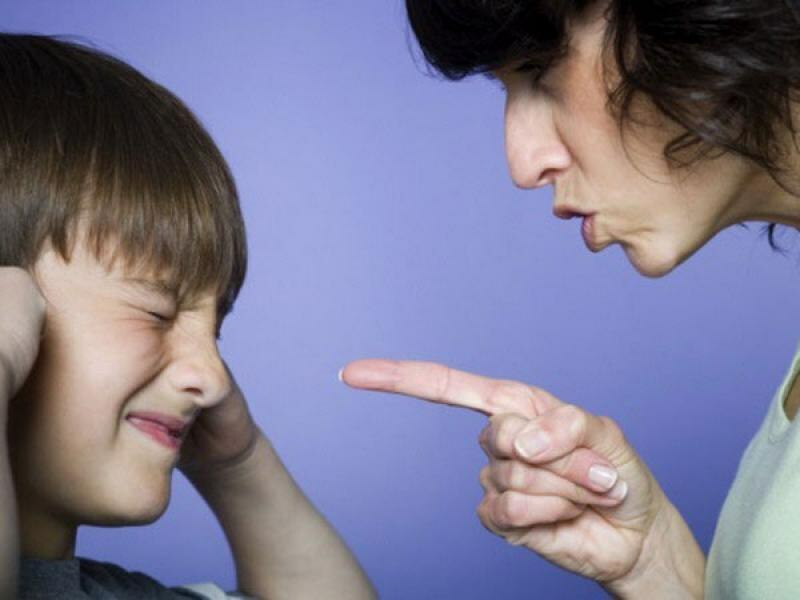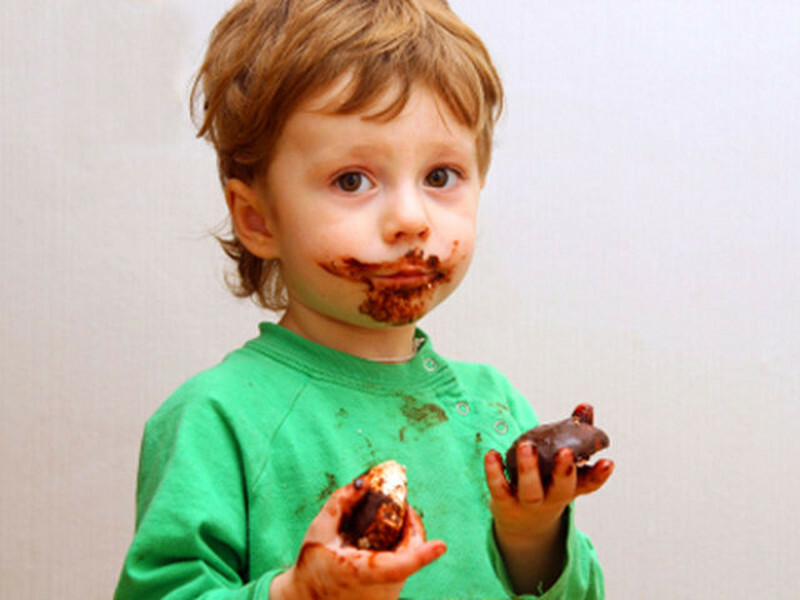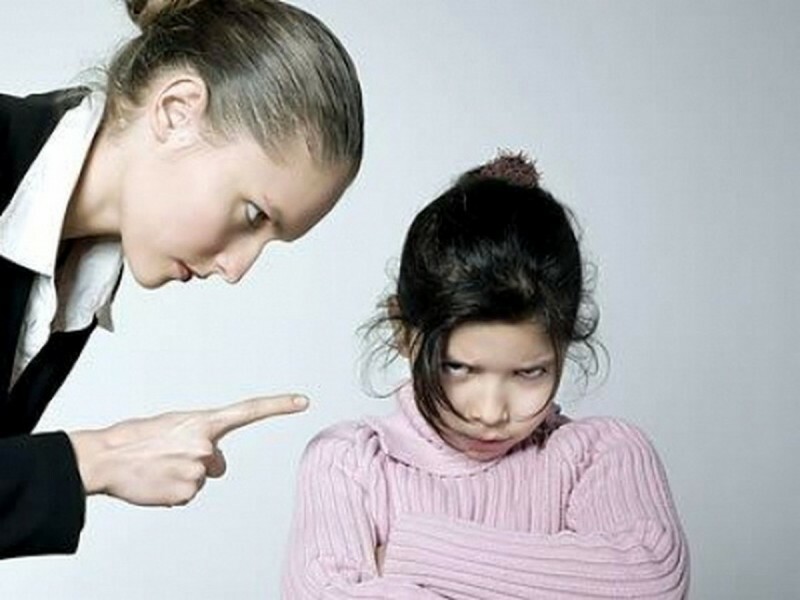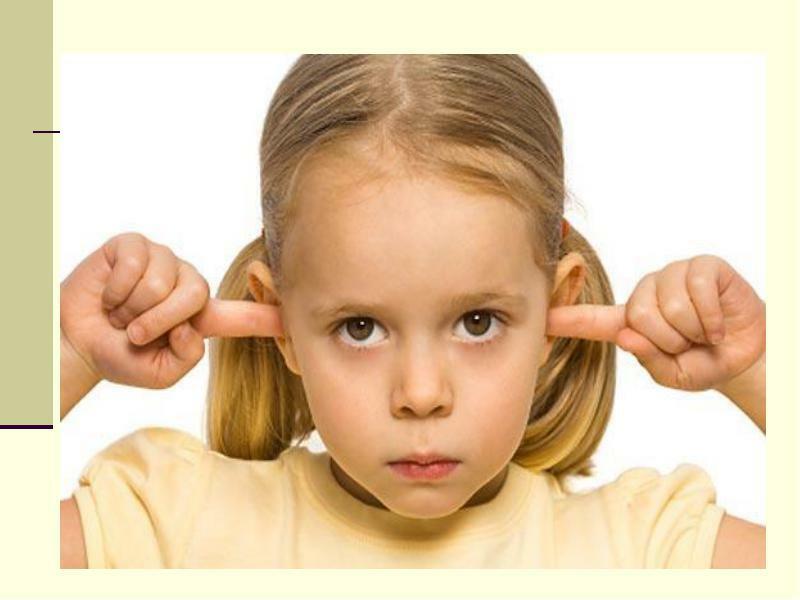In the education of the child, prohibitions play a big role, but permanent "impossible" can lead to a completely different result, which will affect the whole future life.
Contents of
- When do children have taboos?
- Is it okay to talk to a child?
- Why can not you say "no" to children?
- Should there be a word "impossible" in the lexicon of parents?
- Obscured taboos
- Parental tricks
- Words that can not be spoken to children
- The word "can not" in raising a child
- Video: 10 phrases that can not be spoken to a child
Parenting is a lengthy and complex process that begins with the child's awareness of certain prohibitions and rules. But is it right to say the word "not allowed" all the time, should it be in the lexicon of a young mother? As it turns out, the answer to this question is not so simple, and numerous prohibitions can lead to unexpected consequences.

When do children have taboos?
Until one year old the child does not react to bans and even after a year can ignore the direct requirement to stop the activities that are objectionable to Mom. Sometimes children react quite differently to prohibitions: they start with even greater zeal for the conceived or arrange a hysterics, the purpose of which is to defend their desire.

When does the child begin to react correctly to the ban? Each child has an individuality and the timing of the formation in the mind of the baby of such a neoplasm as a ban - everyone has their own. Children who rarely hear "can not" can begin to understand the prohibition much later than their peers.
Is it okay to talk to a child?
Obviously, a child who does not know the prohibitions performs many actions that can cause him direct harm. In modern apartments and houses, which for the child represent an unexplored and so tempting world, contain a huge number of sources of danger. These are rosettes, corners, cutting and stabbing objects, household chemicals and other items in excess available in the environment of the child.

It is therefore not surprising that parents from a very young age, even when the child does not yet understand the speech, introduce it to prohibitions. And as modern children are extremely active, then a whole set of prohibitions arises, which negatively affects the child's psyche, surrounded by continuous taboos.
Why can not you say "no" to children?
A child who is forbidden from the very childhood grows with a sense of inner constriction, stiffness of inner potential and will be inclined to depend on someone else's opinion in the future. Prohibiting much to your baby, you develop complexes in it, limit his choice and narrow your horizons. Such a child with time will lose the desire to explore the world, because at every step, opening up to something new, he meets a ban.

In the future, improper education of a child with respect to the word "impossible" can be affected by lack of initiative, insecurity and conformality. The child will be afraid to express his opinion in school with any discussions, he will be afraid to answer, because he will subconsciously feel not right - he was taught from childhood that it is impossible, he does it wrong.
Should there be a word "impossible" in the lexicon of parents?
Unequivocally the child should understand what is good, what is bad and to know when he is doing wrong. Specialists say that with the education of children and the formation of certain prohibitions, one must be guided by age.
It turns out that, according to this theory, a child can remember and realize as many "impossible" as he has for years. So, for a two-year-old child, two main prohibitions should be singled out and not imposed more, and children up to a year should not be forbidden at all - they are not yet able to perceive the meaning of the parental strict word.

veiled prohibitions
Wise parents organize the space and leisure time of their baby in such a way that the child simply could not do wrong. This will be provided if you:
- create a comfortable and safe environment, by neutralizing all the dangers of
- , provide the child with creative conditions that will not damage any valuable items and clothes
- will give the child the correct example of manipulation with various
- objects clearly define the prohibitions and will clearly adhere to them:it is unacceptable for one of the parents to allow what the other

prohibits. Thanks to these simple rules, the child will receive some freedom, will harmoniously and diversify developto be interested in the surrounding world and try to know it. And unnecessary, meaningless prohibitions can not harm a tender child's psyche.
Parental tricks
The word "impossible" is categorical, but it will become more acceptable if you paint it in more gentle tones and try not just to express a ban, but to explain to the child: why not?than it can be dangerous?how to do good and right?
If the child repeats the consequences of actions and explained in a gentle, caring tone, then the prohibition will not cause a negative and hysterics, the child will after some time begin to understand and cease to perform undesirable action.

An excellent solution for the child's enthusiasm for something forbidden will try to distract him. For very young children, various visual objects are suitable: "Look, doggy!", "Here the butterfly is flying", etc. For older children, they will do:
- poteshki
- counters
- rhymes
- finger games

It is important not to show negative emotions if the child behaves differently than you would like. Do not show anger, anger, do not resort to shouting, even if the baby is very spoiled. The rule of caring parents is always to show tenderness and love in words and deeds.
Words that can not be spoken to children
Often parents say phrases that adversely affect a child. As a rule, such "pedagogical methods" are rooted in the past - this is what our parents and grandmothers used to say, and they were great-grandmothers. And the essence of the said and the impact on his child no one thinks about. What should not you say to your child so as not to harm him?

Never say to a child:
- "If you do not eat well, you will not grow up" - such a phrase can form complexes in the child and even cause a problem of excess weight in the future.
- "Listen to your mother, otherwise you will be taken by a sweatshop" - do not sow in the showerchild fear, because it can develop into a serious phobia that your child will carry through life( even among adult intelligent people there are many who are afraid of the dark and tremble with any rustle)

- "What are you clumsy", "You are doing everything wrong""Your hands are hooks" - thats words humiliate the child's dignity, his self-esteem, self-confidence. The kid will consider himself unworthy of anything, unskillful, worse than others
- "If you dig in your nose, you'll break your finger", "Do not grumble, and then this and you will remain" - in order for the child not to do uncivilized actions, the child should be told the truthful reasonwhy do not they do it, and not invent fables. Show the correct example: if you want the child not to pick at the nose, then first of all do not pick your nose yourself
- "All children are ugly and bad, and you are the most beautiful and good" - do not raise a child in a narcissistic creature who considers himself the center of the universe. Say what a wonderful and beautiful child, but do not blacken others in the eyes of the child
The word "impossible" in the child's upbringing
Communicating with the child is an important component of interaction with him and the way of pedagogical influence. Therefore, one should be very cautious about the words spoken, as well as the tone they are told. The word "can not" must necessarily be present, because without prohibitions one can not imagine a full-fledged education process, but it should not be spoken for each occasion, without infringing the child and not limiting it completely, but only as a deterrent.
